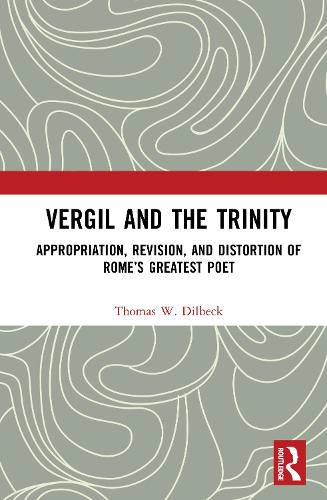Readings Newsletter
Become a Readings Member to make your shopping experience even easier.
Sign in or sign up for free!
You’re not far away from qualifying for FREE standard shipping within Australia
You’ve qualified for FREE standard shipping within Australia
The cart is loading…






This volume reveals how some Christian authors used the poetry of Vergil to explain important aspects of the three persons of the trinity, shedding new light on the attitudes of early Christians towards non-Christian texts.
Readers gain insight into how Christians employed the work of Rome's most famous poet in discussions about the trinity, which one might assume were only limited to the use of canonical scripture. The book explores why these authors relied upon Vergil in particular and which portions of his corpus interested them, before analysing several examples in order to accurately contextualise how Vergil's work was cited and employed by the Latin Fathers in their own work. These Christian authors writing in Latin used Vergil for more substantive reasons than rhetorical ornamentation, and Dilbeck argues that they formed a textual community which included his works.
Written in accessible prose, Vergil and the Trinity is of interest to not only to those working in the field of patristics, but also to classical scholars, biblical scholars, readers interested in the history of biblical interpretation, and in the history of philosophy.
$9.00 standard shipping within Australia
FREE standard shipping within Australia for orders over $100.00
Express & International shipping calculated at checkout
This volume reveals how some Christian authors used the poetry of Vergil to explain important aspects of the three persons of the trinity, shedding new light on the attitudes of early Christians towards non-Christian texts.
Readers gain insight into how Christians employed the work of Rome's most famous poet in discussions about the trinity, which one might assume were only limited to the use of canonical scripture. The book explores why these authors relied upon Vergil in particular and which portions of his corpus interested them, before analysing several examples in order to accurately contextualise how Vergil's work was cited and employed by the Latin Fathers in their own work. These Christian authors writing in Latin used Vergil for more substantive reasons than rhetorical ornamentation, and Dilbeck argues that they formed a textual community which included his works.
Written in accessible prose, Vergil and the Trinity is of interest to not only to those working in the field of patristics, but also to classical scholars, biblical scholars, readers interested in the history of biblical interpretation, and in the history of philosophy.